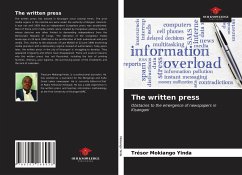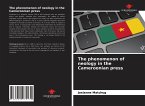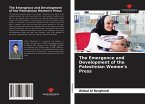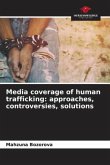The written press has existed in Kisangani since colonial times. The print media organs in the colonial era were under the authority of Belgian colonists. It was not until 1959 that an independent Congolese press was established. Most of these print media outlets were created by Congolese political leaders whose doctrine was often limited to demanding independence from the Democratic Republic of Congo. The liberation of the Congolese media landscape on 24 April 1990 led to the proliferation of both audiovisual and print media. This, thanks to the advances of Law 96/002 of 22 June 1996 enshrining media pluralism with a declaratory regime instead of authorization. Sixty years later, the written press in the city of Kisangani is struggling to develop. They appeared irregularly and others have disappeared. There are several reasons why the written press has not flourished, including the lack of printing facilities, illiteracy, poor logistics, the purchasing power of the inhabitants and the lack of subsidies.








